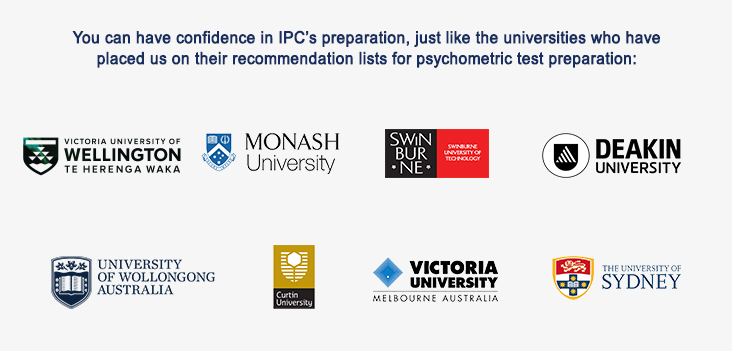Ipsative approach to measuring personality
Broadly speaking, there are two types of personality tests: ipsative and normative. Ipsative personality tests are designed to measure how job-applicants prefer to respond to, for example, problems, people, work pace and procedures. The ipsative approach does not allow you to be directly compared to other people’s personality test responses. One of the main test developers using this approach in its personality tests is SHL. In contrast, normative personality tests assess measurable personality characteristics on individual scales and your end score measures a specific characteristic against patterns of normality (i.e., other people’s scores). Normative approaches to personality testing allow employers to compare your results with other job-applicants, particular groups and/or populations. The majority of personality tests such as Hogan Personality Inventory, 16 personality factors, 15FQ+ and Global Personality Inventory have been designed based on the normative approach.
Generally speaking, personality tests are said to be a great measure of job-applicant’s potential job fit and success, however employers are wary of social desirability responding particularly on normative personality tests. In this context, social desirability responding refers to when a job-applicant attempts to respond to personality related items in a psychometric test in a way that reflects them positively but not necessarily accurately. Whilst personality items in a psychometric test do not necessarily have ‘right’ or ‘wrong’ answers, job applicants obviously want to be seen to possess the personality traits that they consider will be favoured by their potential employers. That is, job applicants will want to select ‘good’ answers to increase their chances of being hired. Social desirability responding is otherwise referred to as ‘faking’. The ipsative approach to measuring personality is thought to overcome this potential limitation of normative personality tests. Some even argue that the ipsative approach eliminates instances of social desirability responding, or faking.
Whilst both normative and ipsative approaches to measuring personality include items which attempt to assess and reflect job-applicants’ typical work style behaviours, there are some fundamental differences in the way the items are presented, in the questionnaire instructions, and in how the items should be answered. Therefore, it is important that job-applicants practice personality tests with an ipsative approach to measuring personality to gain confidence with this potentially new and unfamiliar style of psychometric test. Some of the main differences between normative personality test items and personality items with an ipsative format will be highlighted to demonstrate why it is important to practice ipsative personality tests online prior to your real psychometric tests.
Normative personality test items present job-applicants with a statement (e.g., ‘Customer service is one of my strong points’) and then provide rating options (e.g., from a scale of 1 = strongly disagree – 5 = strongly agree). Some employers may think that this format sets the job-applicant up to answer ‘positively’ because the presented options make the intention of the question obvious. In contrast, ipsative measures present an alternative format designed to inhibit faking. Personality items constructed with an ipsative approach present job-applicants with options equal in desirability so that their choice cannot be influenced by social desirability. Job-applicants are asked to indicate which items are ‘most true’ of them and which are ‘least true’ of them in their everyday behaviour. In this type of test, job-applicants are forced to choose among four equally positive options. Ipsative personality tests are also referred to as ‘forced choice’. As mentioned earlier, there are various other differences with ipsative personality tests such as in the instructions. Practicing psychometric tests online will provide you with direct experience and practice with ipsative personality tests so that you are not entering unknown territory when you sit your real psychometric test.
SHL, OPQ, 15FQ+, 16pf and other trademarks are the property of their trademark holders. None of the trademark holders are affiliated with the Institute of Psychometric Coaching or this site.









